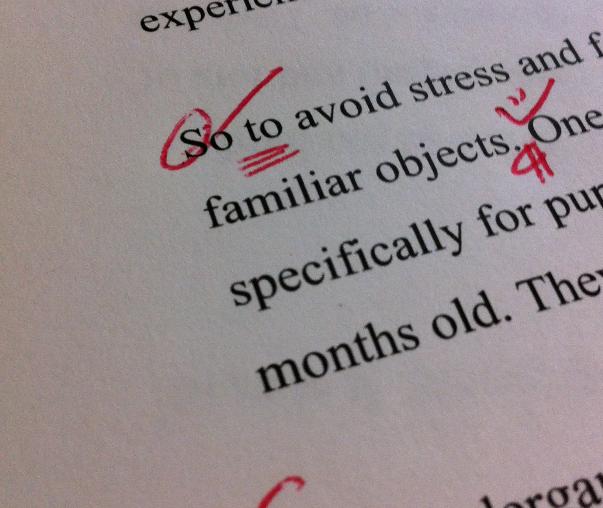 I’ve had the great pleasure of editing a vast range of material during my nearly 20 years of experience – everything from articles, scripts, manuscripts, books and pamphlets through to corporate documents. Of all the projects I undertake with words, I find editing one of the most rewarding.
I’ve had the great pleasure of editing a vast range of material during my nearly 20 years of experience – everything from articles, scripts, manuscripts, books and pamphlets through to corporate documents. Of all the projects I undertake with words, I find editing one of the most rewarding.
A good editor won’t be noticed, but a poor one will be detected immediately! Input from an editor will depend on the type of project and the people involved, but can vary from proofreading and copyediting to structural and style input. Some projects, for instance, come to me almost complete, only needing another set of eyes on them and a little tweaking. Other projects require considerably more input, whether that’s in the words themselves, the structure or the style. My input will vary depending on the author, the budget, the nature of the project and the desired outcomes.
An editor can help remove ambiguity, clarify meaning, ensure consistency in style and language (often creating a style guide if one doesn’t exist) and provide structure. An editor can also simplify language, particularly in cases where the original document has been written by specialists or contains technical jargon (as in manuals, guides, instructions etc.).
I’ve worked with authors at all stages of writing. Working with an author before writing has commenced tends to be more of a collaborative session to talk through ideas for the structure, style and language of a project. Similarly, an author might contact me during a project to ensure that they’re on track or to explore issues that may have arisen. Working with an author after they’ve finished writing is generally to provide overall feedback, copyediting and/or proofing.
The variety of ways in which people like to work and the diversity of projects are just two of the factors that make editing so enjoyable.

